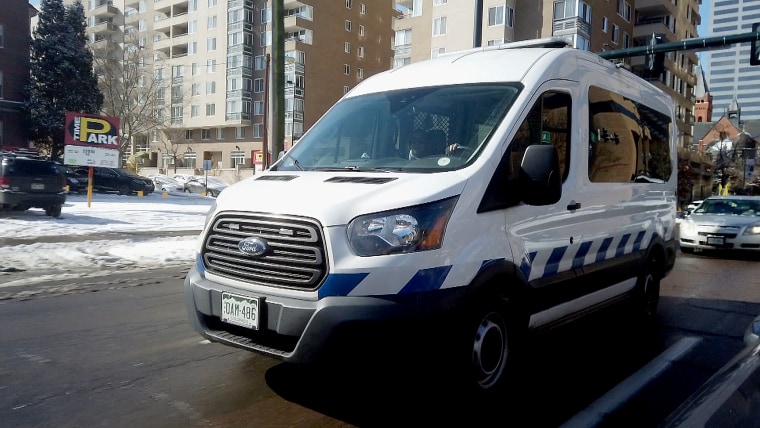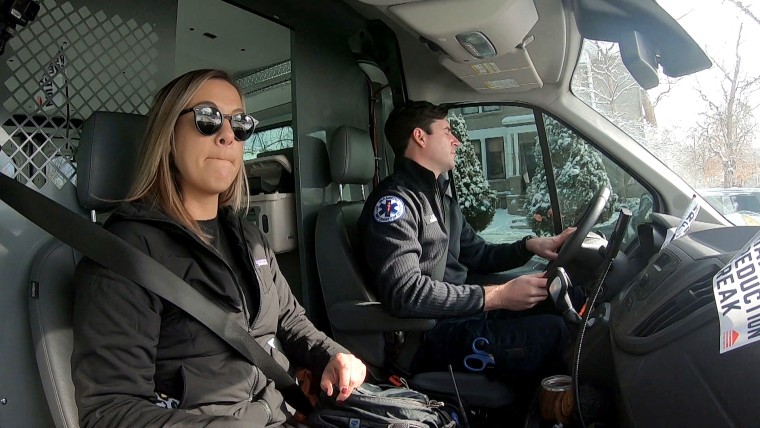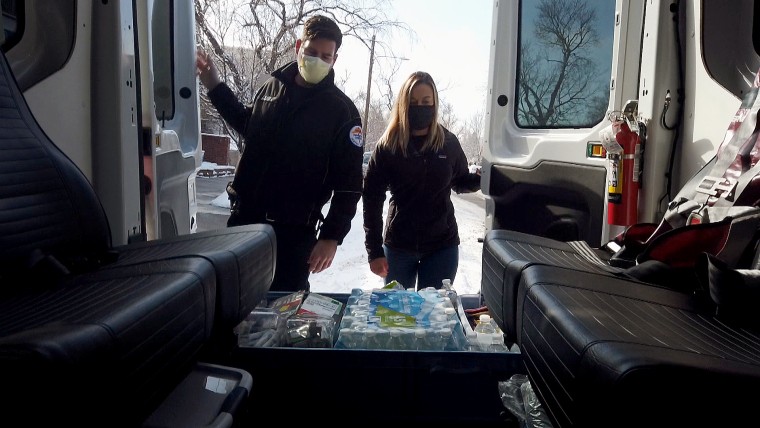DENVER — Dispatching mental health specialists instead of police officers to substance abuse and nonviolent emergencies sharply lowered low-level crime in Denver, according to a study published Wednesday in Science Advances.
The Support Team Assistance Response, or STAR, program, which uses a mental health crisis interventionist and a paramedic to respond to nonviolent 911 calls, showed a 34 percent reduction in crime for offenses such as trespassing and public disorder, according to the study conducted by a Stanford University professor and researcher.
As U.S. cities rethink the role of law enforcement in nonviolent 911 emergencies, the research uncovered the strongest evidence yet that dispatching mental health professionals instead of police officers in some instances can have significant benefits, the report said.

Researchers estimated that the STAR program prevented nearly 1,400 low-level criminal offenses, such as public intoxication, and increased the likelihood that potential repeat offenders were getting more assistance.
“We found something quite striking in those targeted precincts. It forgoes police involvement altogether,” said a co-author of the report, Thomas Dee, the Barnett Family Professor at the Stanford Graduate School of Education. “It’s kind of a radical innovation in how we structure first responses for people in mental health or substance abuse crises.”
Of the 748 incidents to which clinicians and paramedics responded, police assistance was never needed, according to the study.
Last year, the American Psychological Association estimated that 20 percent of calls to police involve mental health or substance abuse issues. A 2015 report by the Treatment Advocacy Center, a mental health advocacy group, reported that people with untreated mental illness are 16 times more likely to be killed in police encounters.
The analysis comes at a pivotal time in broader national discussions about police officers who respond to low-level crimes.
Public awareness of the challenges of providing humane and effective policing have come under intense scrutiny since then-Minneapolis police Officer Derek Chauvin killed George Floyd in 2020 after a 911 call over a counterfeit bill.
The report said making police officers first responders in nonviolent situations involving people in mental health or substance abuse crises “can result in unnecessarily violent and tragic outcomes."
Dee said their findings showed the Denver program could serve as a national model for how police departments approach small crimes.
New York; Austin, Texas; San Francisco; San Mateo, California; and Washington, D.C., are already experimenting with new ways of responding to certain types of mental health emergencies with little or no law enforcement involvement, according to the report.
The cities have been motivated not only by high-profile cases of police brutality but also by estimates that police spend more time responding to “low priority” calls than any other type of emergency, said Dee, who estimated that mental health experts could direct two-thirds of such calls.
The STAR program deploys a mental health clinician and a paramedic to engage with people experiencing crises related to mental health, poverty, homelessness and substance abuse through Denver’s 911 system.
The study, which was conducted over six months starting in June 2020, evaluated eight police precincts using the program in central Denver and the remaining precincts that were not involved.

Denver Mayor Michael B. Hancock did not respond to requests for comment.
Police Chief Paul Pazen, who supports the program, said: "It's a better outcome for individuals in crisis. We want to get the most appropriate resource to help them. We find this to be very successful."
He said many of the people in question get mental health and substance abuse assistance in the days and weeks after STAR intervention.
The program plans to soon expand the number of crisis intervention vans from four to nine.
Pazen said the research showed the program made “no discernible difference” in high-level crimes, such as murders, shootings, robberies or auto thefts.
Dee said the estimate does not include follow-up costs, such as substance abuse treatment and other support services, or costs related to incarceration.
